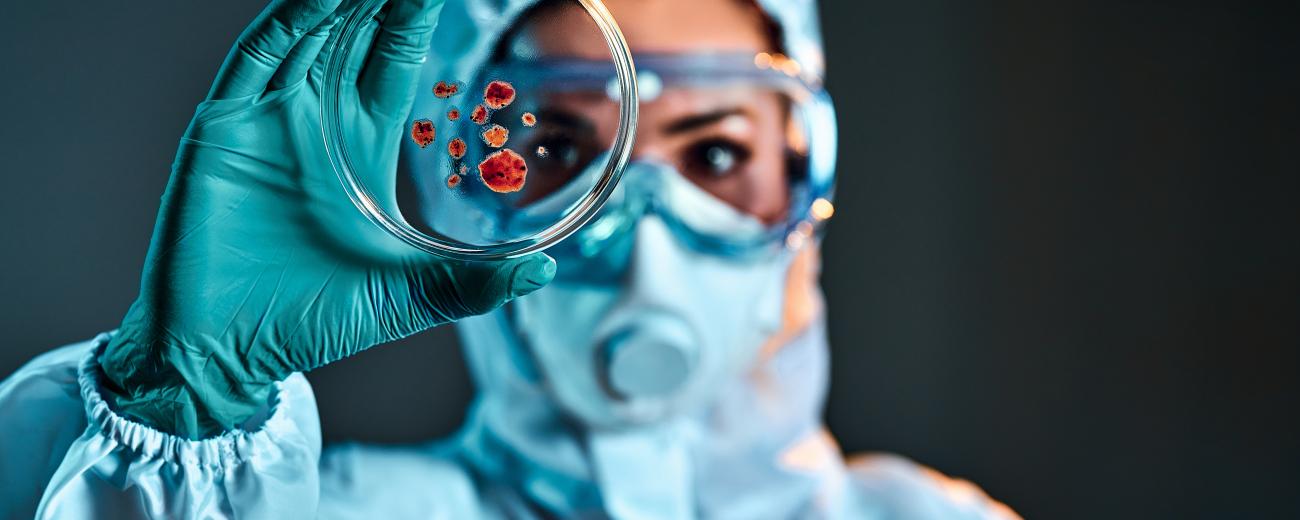
Director's Lecture Series - Biosecurity: Addressing the global gaps

Key information
- Date
- Venue
- Brunei Gallery
- Room
- BGLT
- Event type
- Event highlights
About this event
COVID-19 has revealed that national governments and the international community are dangerously unprepared to respond to epidemics and pandemics—underscoring global vulnerabilities to future biological events that could match or exceed the devastating impacts of COVID-19. In an era when globalization, urbanization, and environmental degradation are increasing the likelihood of naturally emerging infectious disease outbreaks, the world also faces a growing risk from human-caused pandemics that could result from accidental or deliberate misuse of modern bioscience and biotechnology.
The inability to rapidly identify the source of SARS-CoV-2, the virus responsible for the COVID-19 pandemic, has underscored both the technical and political challenges to responding to potentially catastrophic biological events. The war in Ukraine has also raised concerns about disruption to regional and global security with the possibility of Russia covertly using chemical or biological weapons under a false-flag operation. In a recent article, Angela Kane, Senior Advisor to the Nuclear Threat Initiative, articulated the urgent need to ‘bolster the capabilities of the United Nations to assess the origins of high-consequence biological events.’ Currently, there is a significant gap in UN capabilities to investigate pandemic origins when the source is unknown—for example whether the event resulted from a natural outbreak, a deliberate biological weapons attack, or a laboratory accident. The WHO has a strong comparative advantage in investigating biological events of natural origins, and the UN Security-General’s Mechanism has the authority to investigate allegations of bioweapons use, but when the origin of a pathogen is unknown there is no international body that can quickly respond and investigate.
One way to address this, Kane proposes, is a ‘Joint Assessment Mechanism’ which would employ a small unit within the UN Secretary General’s Office to assess the source of biological events of unknown origins and better meet today’s threat environment.
SOAS Director, Adam Habib will be joined by Angela Kane and Wilmot James, Senior Research Scholar at the Institute for Social and Economic Research and Policy (ISERP) at Columbia University, to explore how the world can addresses these gaps in the global biosecurity architecture on 13 October in a hybrid event.
The SOAS Director’s Lecture Series focuses on the planetary questions of our time and how to enable a collective human response. In this historical moment, all our big challenges – pandemics, climate change, inequality, social and political polarisation – are transnational in character and require a cohering of the human community.
This event is hosted in partnership between SOAS, University of London and the Bloomsbury SET. The Bloomsbury SET (Science, Economics, Technology) is an innovation partnership that brings together Universities with a strong reputation for creating enduring impact from their research. The programme, awarded through Research England’s Connecting Capability Fund, is led by RVC in partnership with LSHTM, SOAS University of London and the Infection Innovation Consortium (iiCON), led by the Liverpool School of Tropical Medicine. Bloomsbury SET also works closely in conjunction with the London International Development Centre (LIDC), a consortium of seven Colleges of the University of London – shaping the future of international development.
Sign up to attend this event via Eventbrite.


